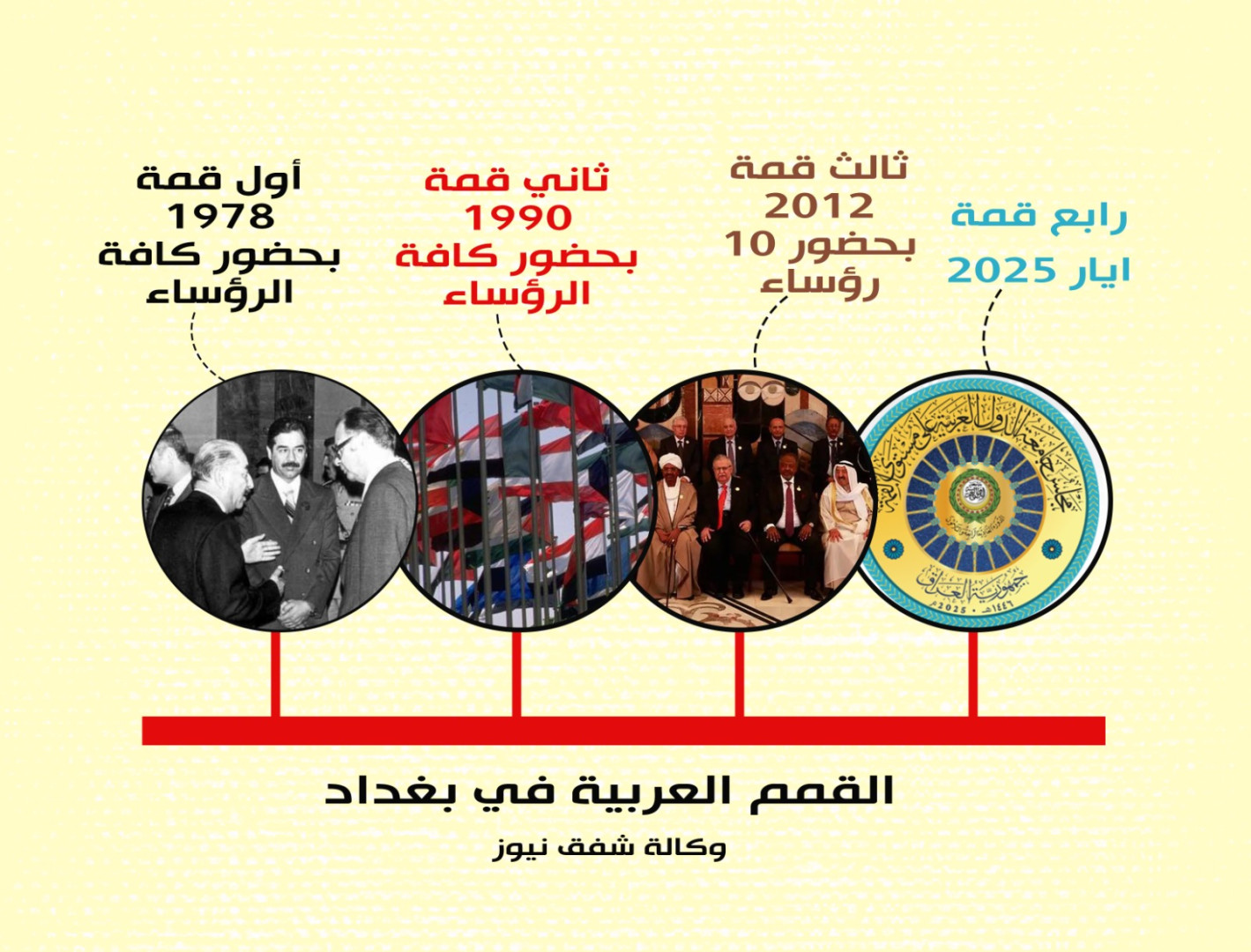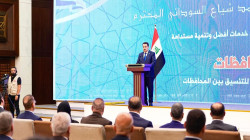Iraq’s 4th Arab summit tests diplomatic comeback

Shafaq News/ Baghdad is set to host its fifth Arab League summit on May 17, 2025—marking a fresh bid to reclaim its place as a regional convener after decades of war, isolation, and political transition.
1978: Baghdad Leads Arab Backlash
Iraq’s summit history began in 1978 when Baghdad hosted its first Arab League meeting under President Ahmad Hassan Al-Bakr, with significant involvement from then–Vice President Saddam Hussein. At the time, Iraq enjoyed relative political stability and used the summit to spearhead Arab opposition to Camp David Accords, Egypt’s peace deal with Israel.
The summit’s outcome—suspending Egypt’s Arab League membership and relocating the organization’s headquarters from Cairo to Tunis—marked a pivotal shift in inter-Arab dynamics. Iraq positioned itself as a leading voice of pan-Arab nationalism and staunch opposition to separate peace deals with Israel.
1990: Summit Before the Storm
In 1990, Iraq hosted its second summit, this time under Saddam Hussein's presidency and against the backdrop of economic turmoil following the Iran-Iraq War. Though the meeting addressed critical issues such as the Palestinian (The establishment of Israel after WW2) cause and Yemen’s unification, it failed to defuse Iraq's escalating tensions with its Gulf neighbors—particularly Kuwait. Weeks later, Iraq’s invasion of Kuwait plunged the region into crisis and pushed Baghdad into prolonged diplomatic isolation.
2012: A Cautious Return
More than two decades later, Iraq re-entered the Arab summit scene in March 2012. Now under a new political system, the summit was hosted by President Jalal Talabani and Prime Minister Nouri Al-Maliki (Now the head of State of Law Coalition) amid a fragile security environment marked by ongoing bombings and sharp political divides. The Arab Spring had redrawn the regional map, and the Syrian crisis dominated the agenda.
While many states sent only low-level delegations, the attendance of Kuwait’s emir marked a diplomatic breakthrough. The summit offered Iraq a limited but significant chance to demonstrate that it could again function as a regional convener.
2025: A Bid for Leadership
As Baghdad prepares for the summit, the stakes are higher. Prime Minister Mohammed Shia Al-Sudani's government has sought to recast Iraq as “a bridge-builder in the Arab world,” following years of regional mediation efforts—including hosting rival powers during the Baghdad Conferences for Cooperation and Partnership in 2021 and 2022.
The challenge now lies in turning symbolic participation into actionable leadership. With complex regional files on the table—Gaza reconstruction, the Syrian crisis, internal conflict in Libya and Sudan, and the absence of a unified Arab vision—simply organizing the summit will not be enough.
Still, Iraqi officials view the summit as an opportunity to introduce a new Arab framework built on mutual respect, non-interference, and economic integration rather than division. If the summit can produce tangible outcomes—such as advancing Arab reconciliation or securing support for Gaza’s rebuilding—it may mark a turning point in Iraq’s reintegration into the regional political architecture.
Even if the summit falls short of transformative decisions, officials believe its very convening in Baghdad sends a strong signal that Iraq has stepped out of the shadow of war and reasserted its voice in a region still searching for stability.





